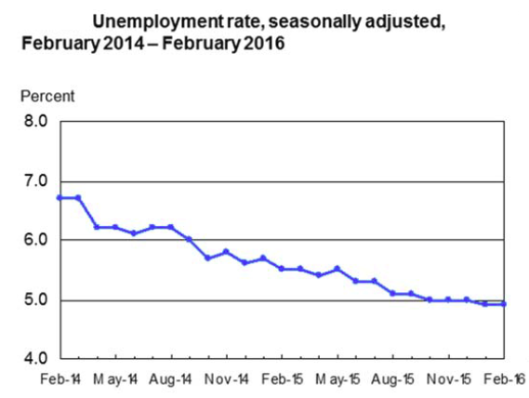Jobs came in well above expectations at 242,000 despite tax data collections that support a Job Growth estimate of 55,000 to 85,000.
A quick dive into the details shows the report is a lot weaker than the headline number indicates. Of the 242,000 jobs added, 304,000 of them were part time. That means the economy actually shed 62,000 full-time jobs.
Average hours worked declined as did average weekly earnings despite minimum wage hikes in numerous states at the beginning of the year.
First let’s look at the BLS Employment Situation Summary, unofficially called the Jobs Report.
BLS Jobs Statistics at a Glance
Employment Report
Please consider the Bureau of Labor Statistics (BLS) Current Employment Report.
Total nonfarm payroll employment increased by 242,000 in February, and the unemployment rate was unchanged at 4.9 percent. Job growth occurred in health care and social assistance, retail trade, food services and drinking places, and educational services. Job losses continued in mining.
Unemployment Rate – Seasonally Adjusted

Nonfarm Employment Change from Previous Month

Nonfarm Employment Change from Previous Month by Job Type

Hours and Wages
Average weekly hours of all private employees fell 0.2 to 34.4 hours. Average weekly hours of all private service-providing employees fell 0.1 to 33.3 hours. Average weekly hours of manufacturers declined 0.2 to 40.2 hours.












Leave A Comment